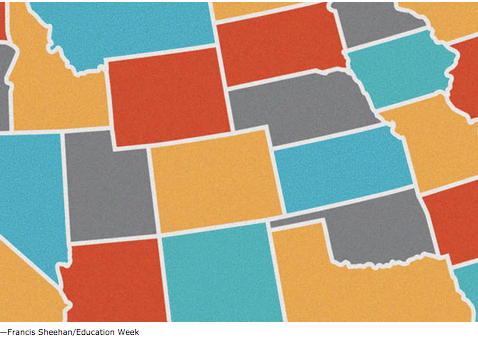Curator’s Note: The current administration celebrates chaos, conflict, and lack of civility in public life. The encouragement of bullying, lying, dishonesty, cronyism and other previously-rejected behaviors has had a significant impact on how our schools are run nationwide. Education has always been a political topic and there have always been strongly-held differences of opinion. This recent report by Education Week summarizes the the implementation of the Every Student Succeeds Act (ESSA) in this new culture and highlights how the states are absorbing this administrations’ hostility and divisiveness.
The Every Student Succeeds Act has yet to debut in the classroom, and already it’s controversial among state and local policymakers.
Political observers expect all that to continue as ESSA rolls out this coming school year. Meanwhile, the 2018 midterm elections are coming to a head, with education already resonating as a campaign issue in many states and new K-12 spending plans taking effect.
At issue in many states is which branch of state government oversees public education.
State constitutions aren’t uniform or even entirely clear on that point. As state education departments put the final touches on their ESSA accountability plans last fall, spats broke out between governors, legislatures, state superintendents, and state boards of education over who should have the final word before those plans were sent off to the federal government for approval.
This fall, three-fourths of legislatures and 39 governor seats are up for grabs, meaning the political winds could soon shift again in some states, with potential impact on how ESSA implementation fares in the future. For example, legislative leaders in Pennsylvania have promised next year to override the policies within their state’s ESSA plan with those of their own.
And national and state advocacy groups on the losing end of fights regarding statewide academic goals and the treatment of disadvantaged student groups’ test scores have reorganized in order to better press their agendas, bolstering local chapters and launching aggressive awareness campaigns.




